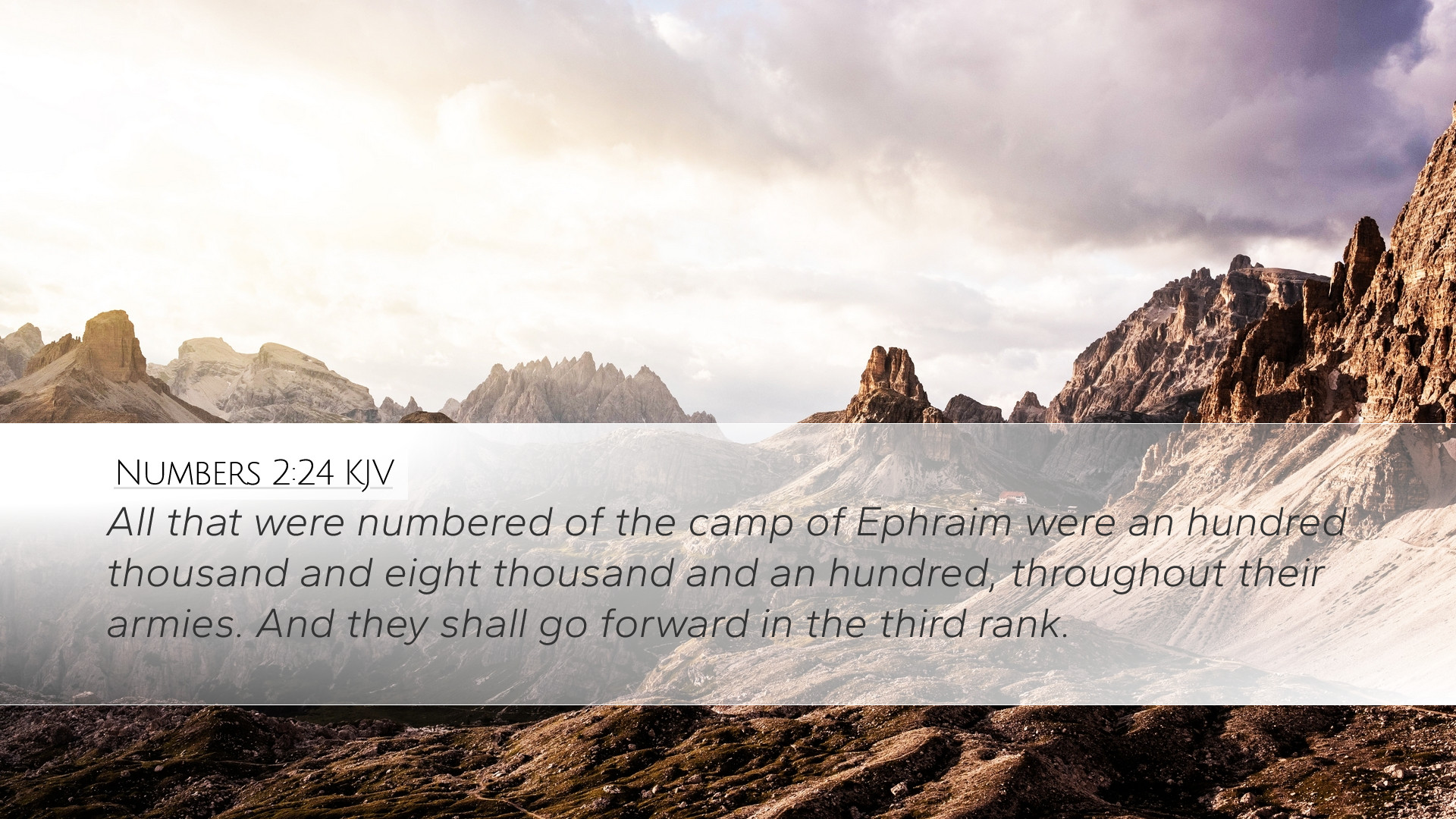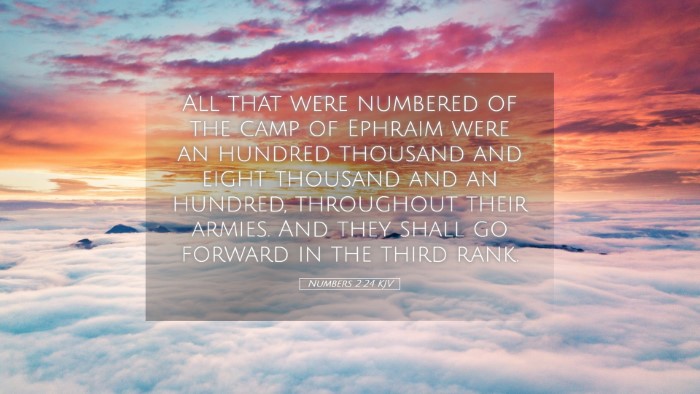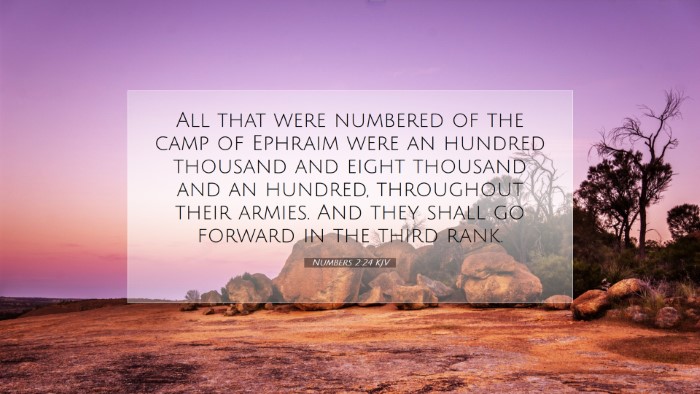Commentary on Numbers 2:24
Verse Overview: Numbers 2:24 states, "And the standard of the camp of the children of Dan shall be on the north side by their armies: and the captains of the children of Dan shall be Ahiiezer the son of Ammishaddai." This verse places the tribe of Dan in its appointed position in the arrangement of the Israelite camps during their journey through the wilderness, showcasing not only order but also divine instruction in their formation.
Historical Context
The book of Numbers primarily documents the journey of the Israelites from Mount Sinai to the Promised Land. They are encamped in a specific order, which reflects the Lord's command and emphasizes tribal identity and organization within the community of faith. The configuration of the camp is deeply symbolic, representing both the unity of Israel and the divine oversight of their journey.
Commentary Insights
Matthew Henry's Perspective
Matthew Henry highlights the significance of the tribe of Dan, noting its positioning in the northern part of the camp. He emphasizes that Dan, with its standard (or banner), symbolizes strength and protection, reinforcing the safety of the encampment. Henry points out that the presence of each tribe’s standard is indicative of their identity and purpose, providing a sense of belonging and responsibility. In discussing Ahiiezer as the captain, he notes that capable leadership is essential for community order and success.
Albert Barnes' Remarks
Albert Barnes offers a detailed account of the placement of the tribe of Dan. He draws attention to the military implications of their position, as being north could suggest a defense against potential threats from that direction. Barnes contextualizes the tribe's leadership under Ahiiezer, considering how the leadership had a significant role in guiding their armies, implying a deeper level of organization within the larger communal structure.
Adam Clarke's Analysis
Adam Clarke builds upon the idea of organization by noting the importance of each tribe's standard not only as a means of identification but also of rallying the people. He points out that the standards served functional and symbolic roles, helping the people to understand their ranks and places in the formation. Clarke emphasizes that Dan, despite being the last of the tribes to receive its designation, is nevertheless positioned strategically and is entrusted with vital responsibilities.
Theological Implications
The arrangement of the tribes can be seen as a reflection of God's order in the church today. Just as He called each tribe to a specific location and role, so too does He call His people into specific ministries and functions within the body of Christ. This highlights themes of diversity and unity, where different roles support the overarching mission. The positioning of Dan might also allude to the security and protection God provides to His people as they journey through life.
Practical Applications for Today
- Understanding Our Roles: Just as God assigned roles to the tribes, we should seek to understand and fulfill our God-given purposes within the church and our communities.
- Value of Leadership: Ahiiezer's leadership points to the necessity of wise and godly leaders in our churches who can guide and protect their congregations.
- Unity in Diversity: This passage encourages us to celebrate the diversity of gifts and roles among believers while striving for unity in our mission to preach the Gospel.
- Dependence on God's Guidance: The entire arrangement and instruction for the camps signal our need to follow God's leading in our lives, as He knows what is best for us.
Conclusion
Numbers 2:24 serves as a reminder of God's meticulous planning and the calling He has placed upon each of His people. The narrative not only recounts a historical event but invites contemporary readers to reflect on their place within the body of Christ and their roles in the ongoing mission of God's kingdom. By examining this verse through the lens of historical context, leadership, and communal identity, it is evident that God’s methods are intentional and reveal His purpose for the Israelites, as well as for modern believers.


